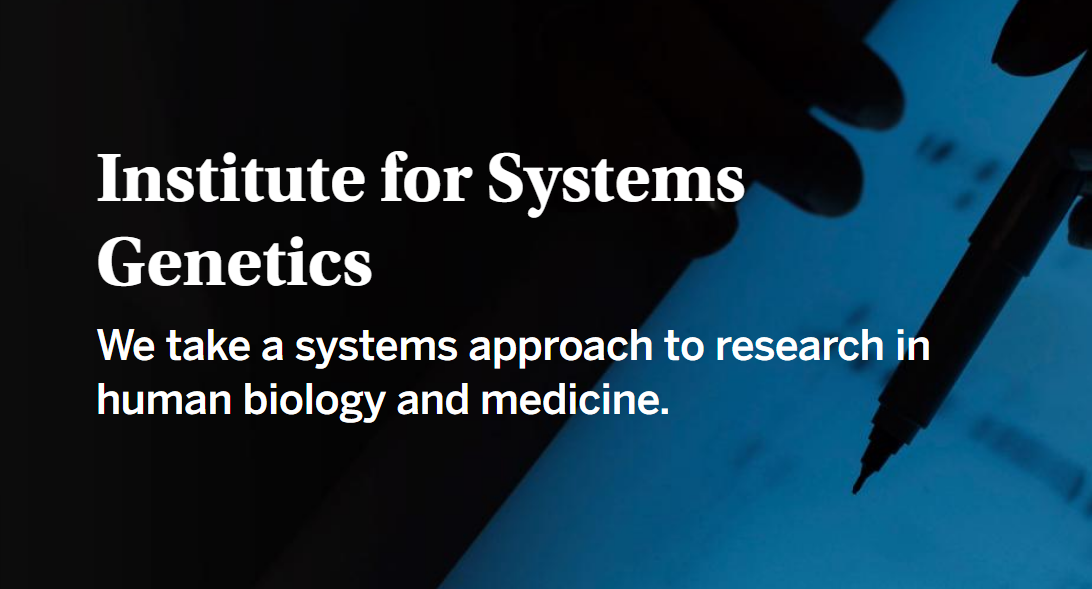Iterative improvement of deep learning models using synthetic regulatory genomics.
Ribeiro-dos-Santos et al., BioRxiv. 2025.
Multiplex generation and single-cell analysis of structural variants in mammalian genomes.
Pinglay et al., Science. 2025.
Engineered transcription-associated Cas9 targeting in eukaryotic cells.
Goldberg et al., Nature Communications. 2024.
Genomic context sensitizes regulatory elements to genetic disruption.
Ordoñez, Zhang et al. Mol Cell. 2024.
On the genetic basis of tail-loss evolution in humans and apes.
Xia et al. Nature. 2024.
Featured by TOO MANY TO LIST!
Synthetic reversed sequences reveal default genomic states.
Camellato et al. Nature. 2024.
Featured by Nature, EurekAlert, ScienceDaily and others
Structural characterization of a complex repeat at the CACNA1C pan-psychiatric locus.
Moya et al. medRxiv. 2024.
Mouse genome rewriting and tailoring of three important disease loci.
Zhang et al. Nature. 2023.
Featured by Nature Genetics, Nature Reviews Genetics, ScienceDaily, EurekAlert, WIRED and others
Synthetic regulatory genomics uncovers enhancer context dependence at the Sox2 locus.
Brosh et al. Mol Cell. 2023.
CREEPY: CRISPR-mediated editing of synthetic episomes in yeast.
Zhao et al. Nucleic Acids Res. 2023.
Longitudinal scRNA-seq analysis in mouse and human informs optimization of rapid mouse astrocyte differentiation protocols.
Frazel et al. Nature Neuroscience. 2023.
Synthetic regulatory reconstitution reveals principles of mammalian Hox cluster regulation.
Pinglay, Bulajic et al. Science. 2022.
Featured by ScienceDaily and EurekAlert and others
Resurrecting essential amino acid biosynthesis in mammalian cells.
Trolle et al. eLife. 2022.
Featured in TheScientist
MenDEL: automated search of BAC sets covering long DNA regions of interest.
German et al. bioRxiv. 2022.
MenDEL: PCR Primer Design as Constrained Optimization Process.
German et al. bioRxiv. 2022.
Germline Transmission of a Circular Human Artificial Chromosome in the Mouse.
Wudzinska et al. bioRxiv. 2022.
Systems genomics in age-related macular degeneration.
den Hollander et al. Experimental Eye Research. 2022.
Two differentially stable rDNA loci coexist on the same chromosome and form a single nucleolus.
Lazar-Stefanita et al. Proceedings of the National Academy of Sciences. 2023.
Super-enhancers include classical enhancers and facilitators to fully activate gene expression.
Blayney et al. Cell. 2023.
A conditional counterselectable Piga knockout in mouse embryonic stem cells for advanced genome writing applications.
Zhang et al. iScience. 2022.
Immune and Genome Engineering as the Future of Transplantable Tissue.
Elisseeff et al. The New England Journal of Medicine. 2021.
A versatile platform for locus-scale genome rewriting and verification.
Brosh, Laurent et al. Proceedings of the National Academy of Sciences. 2021.
Featured in: Hughes and Cong. A CRISPR Landing for Genome Rewriting at Locus-Scale. The CRISPR Journal. 2021.
De novo assembly, delivery and expression of a 101 kb human gene in mouse cells.
Mitchell et al. Genetics. 2021.
Alternative splicing is a developmental switch for hTERT expression.
Penev et al. Molecular Cell. 2021.
Application of counter-selectable marker PIGA in engineering designer deletion cell lines and characterization of CRISPR deletion efficiency.
Li et al. Nucleic Acid Research. 2021.
Engineered dual selection for directed evolution of SpCas9 PAM specificity.
Goldberg et al. Nature Communications. 2021.
Synthetic Genomes
Zhang et al. Annual Review of Biochemistry. 2020.
Probing the dark matter of the human genome with big DNA.
Laurent et al. The Biochemist. 2019.
Big DNA as a tool to dissect an age-related macular degeneration haplotype.
Laurent et al. Precision Clinical Medicine. 2019.
Widespread Transcriptional Scanning in the Testis Modulates Gene Evolution Rates.
Xia et al. Cell. 2019.
Additional Publications:
Genomic context sensitivity of insulator function.
André M. Ribeiro-dos-Santos et al. Genome Research. 2022.
Large-scale identification of sequence variants influencing human transcription factor occupancy in vivo.
Maurano et al. Nature Genetics. 2015.
Systematic Localization of Common Disease-Associated Variation in Regulatory DNA.
Maurano et al. Science. 2012.
Check out also:
Synthetic Yeast 2.0
Learn about our ongoing project to synthesize a designer eukaryotic genome.
The Yeast Art Project
The goal of the Yeast Art Project is to connect individuals to the process of scientific exploration.
The project gives us the opportunity to visualize many of the essential processes in basic biology research.




































